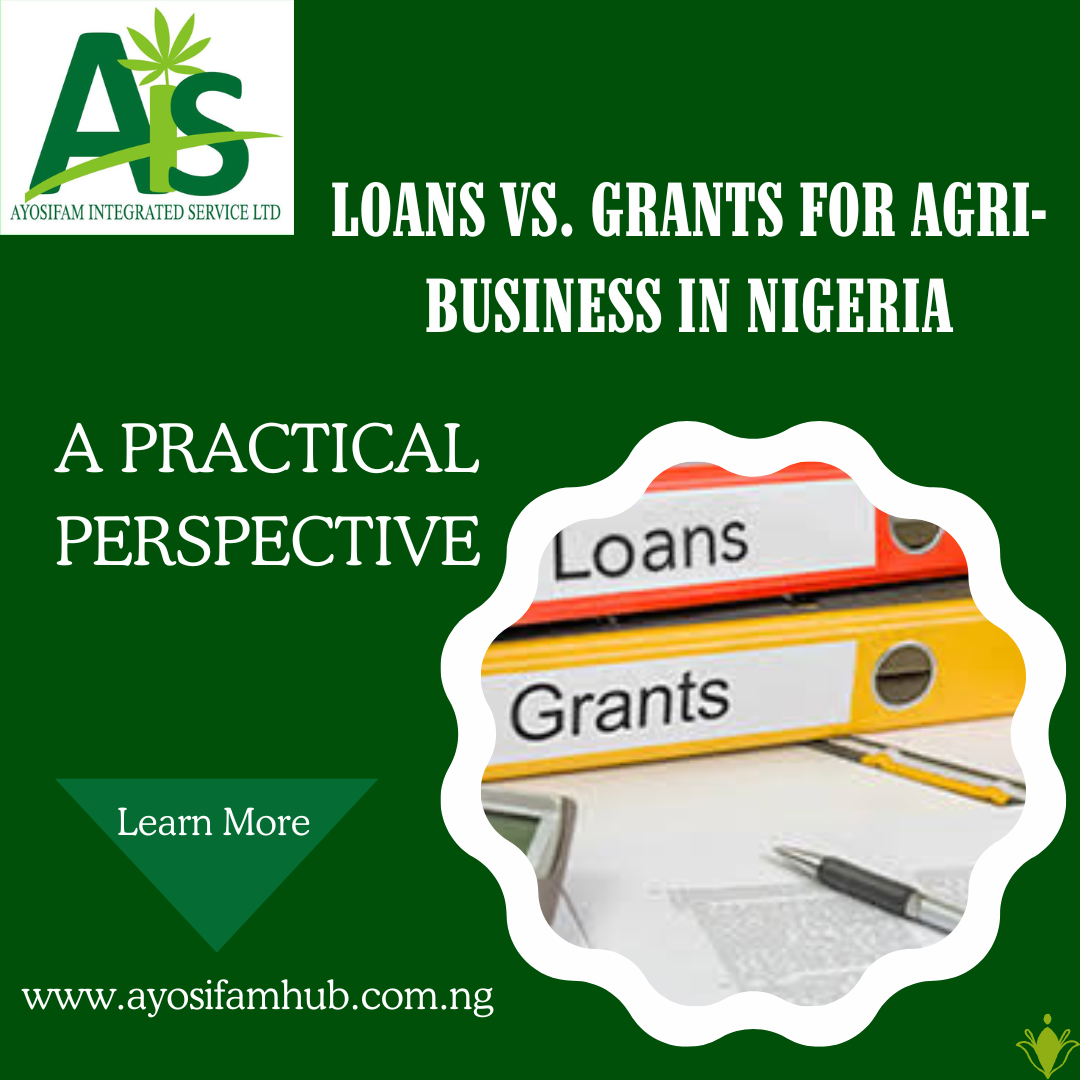The conversation around funding for agricultural businesses in Nigeria often oscillates between loans and grants. At AyosifamHub, we understand the concerns and the need for sustainable financial solutions, especially given the unpredictable nature of our economy and the fluctuating government policies.
Many rightly point out that loans, particularly in an unstable economic environment, might not be sustainable for agri-businesses. The fear is valid: if the market shifts, inflation soars, or policies change, servicing a loan can become a heavy burden. We acknowledge these challenges and the genuine worries about unpredictability.
However, it’s also crucial to face the reality of the Nigerian funding landscape. While the allure of a grant is undeniable – free money to kickstart or expand your venture – the simple truth is that grants are not always available, nor do they fit every agricultural business model. Grant opportunities are often competitive, highly specific, and can be sporadic.1 Basing your entire business plan on the hope of securing a grant can lead to significant delays and missed opportunities.
This is where loans, particularly from government-backed institutions like the Bank of Industry (BOI), come into the picture as a more consistent and reliable funding source. While the process of securing a BOI loan can be lengthy and demand patience, it offers a clear path to capital for those with a well-defined business goal.
Think of it this way: a loan, when strategically utilized, can be the backbone of your agricultural enterprise.2 It provides the initial capital to acquire land, invest in machinery, purchase seeds, or set up processing facilities.3 As long as you have a clear vision, a solid business plan, and a commitment to your goals, a loan can empower you to start and progress your business steadily.
We’re not suggesting loans are without their challenges. The bureaucracy and the time it takes to secure them can be frustrating. However, for a determined entrepreneur with a viable agri-business idea, the availability of these loans, even with their processing times, offers a tangible avenue for growth.
Consider the alternatives: if family support isn’t an option, where else can you reliably access significant capital to get your agricultural business off the ground or scale it up? Loans, despite their perceived drawbacks, often provide that crucial financial bridge.
Our advice at AyosifamHub is this:
- Prioritize a strong business plan: This is fundamental, whether you’re seeking a loan or a grant. A well-researched, realistic plan demonstrates viability and minimizes risk.
- Embrace loans as a primary funding strategy: Understand that while it takes time, government loans can be a consistent source of capital to build and grow your business.
- View grants as a complementary opportunity: If you’re fortunate enough to secure a grant, consider it a bonus that can accelerate your progress or fund specific initiatives. Do not, however, make your entire business dependent on grant availability.
- Focus on sustainability and growth: Develop a business model that can service a loan and generate profit, regardless of external economic fluctuations. This resilience is key to long-term success.
In the challenging but opportunity-rich landscape of Nigerian agriculture, reliable funding is paramount. While the discussion around grants is important, it’s the consistent availability of loans that often provides the most practical and scalable path for agricultural businesses to not just survive, but to truly grow and thrive in our country.




